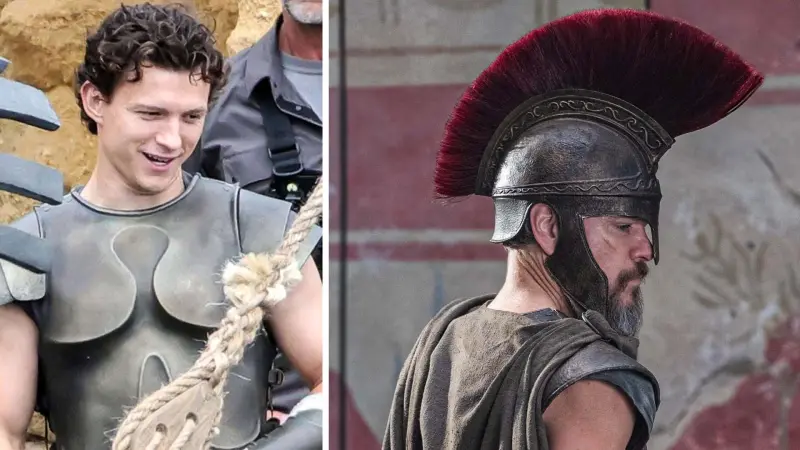Scandinavian researchers claim to have found the earliest-known mention of the Norse god Odin on a portion of a gold disc that was discovered in western Denmark in 2020.
The inscription appears to refer to a Norse king whose face appears in the center of the pendant, and may indicate he claimed descent from the Norse god Odin. © Arnold Mikkelsen, National Museum of Denmark
At least 150 years earlier than the previous earliest reference, which was on a brooch discovered in southern Germany and dated to the second half of the 6th century, according to Lisbeth Imer, a runologist with the National Museum in Copenhagen, the inscription represented the first conclusive evidence of Odin being worshipped as early as the 5th century.
The disc was found in Denmark as part of a hoard that included enormous medallions the size of saucers and Roman coins fashioned into jewelry, as well as around a kilogram (2.2 pounds) of gold. The Vindelev Hoard was discovered in the village of Vindelev in central Jutland.
Experts believe the treasure was buried 1,500 years ago, either as an homage to the gods or to hide it from adversaries. "He is Odin's man," was written on a golden bracteate, a form of slender, ornate necklace, and was probably referring to an unidentified monarch or ruler.
The inscription ‘He is Odin’s man’ is seen in a round half circle over the head of a figure on a golden bracteate unearthed in Vindelev, Denmark in late 2020. Scientists have identified the oldest-known reference to the Norse god Odin on a gold disc unearthed in western Denmark. © Arnold Mikkelsen, The National Museum of Denmark
Imer remarked, "It's one of the best executed runic inscriptions I've ever seen." Early tribes in northern Europe employed runes as symbols for written communication.
One of the principal gods in Norse mythology, Odin was frequently linked to both poetry and battle.
According to the National Museum in Copenhagen, where the collection unearthed in 2020 is on exhibit, more than 1,000 bracteates have been discovered in northern Europe.
Because runic inscriptions are so uncommon, according to expert on ancient languages Krister Vasshus, "every runic inscription (is) vital to how we understand the past."
It is extraordinary in and of itself when an inscription this long occurs, Vasshus stated. It provides some rather intriguing details about ancient religion, which also reveals something about ancient society.
The Viking Age, generally seen as lasting from 793 to 1066, was a time when Norsemen known as Vikings engaged in extensive raiding, colonization, conquering, and trading across Europe. They made it to North America as well.
Each of the many gods that the Norsemen worshiped had unique traits, flaws, and attributes. Details about the gods' characteristics and behavior have been revealed based on sagas and some rune stones.
According to Imer, "That kind of mythology can take us further and have us reexamine all the other 200 bracteate inscriptions that we know."









